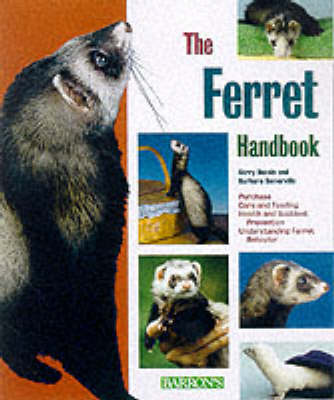
nannah
Written on Mar 3, 2018
This is probably the best ferret information book I've read yet, even if it's really outdated in terms of diet. It's the most thorough and informative and even goes as far as to describe ways you can play with your ferrets -- because often new ferret owners try to play with them like they've played with cats and dogs, and get confused when ferrets don't respond in similar ways.
This little (but densely-packed) book talks about exactly how to ferret-proof a home, how to introduce a new ferret to your pets or family, what things are most dangerous to ferrets, etc. It takes things in a very step-by-step approach that really makes things easy to digest (with pretty bad humor, but that's kind of to be expected).
The book even covers a lot of emergency what-to-do's I haven't seen in others, like ECE (the green slime disease) I encountered when I took a young fuzzy home, and what to do when your older ferrets get ECE. It covers what to do when you have a carrier of ECE and other contagious diseases, etc.
Honestly, this is just a good reference to have if you own ferrets, or want to own them. Just make sure you disregard most or all of what it tells you about ferret feeding!! This was written in 2001, and a lot about ferret feeding has evolved since then. Raw feeding is now a commonplace practice in North America (despite what it says), and with raw feeding, the chance of getting adrenal disease and insulinoma isn't as great--or at least ferrets don't get the diseases as young.
Ferrets are obligate carnivores, which means they can only digest meat. Feeding low-quality kibble isn't going to be easy on their stomach or any other part of their bodies. And don't give them fruit, vegetables, or licorice as treats! Stick with healthy treats, like salmon oil or eggs. Since what goes in a ferret goes out in about 3-4 hours, the chances of getting salmonella (which needs about 7-8 hrs in a digestive system) are very low.
This book is very handy, but for feeding it's best to maybe look online for more information from ferret clubs or specialists as they are much more up-to-date.
